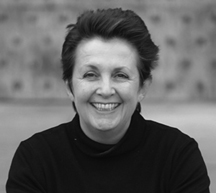
FOREWORD
In my own writing and research on fatherhood, I’ve explored the roles played by fathers in the past and present, the impact of fathers for both good and ill on their children and their children’s mothers, whether good fathers are born or made, and many of the related public policy issues. One thing that I have discovered is that we can learn a lot by identifying and reflecting on our assumptions about fatherhood. By examining the different ideas about fatherhood in the ancient and modern worlds, studying the diaries of fathers, interviewing present-day fathers, and making use of other kinds of empirical research, we learn something that most of us already knew: fathers matter. When we consider fathers and their roles in these ways, we can gain a deeper appreciation for what it means to be a father as well as some significant insights into how to be a good father. The fantastic book in your hands shares these same goals.
You might be wondering what Aristotle or Confucius has to say to contemporary fathers, or whether the ideas of philosophers can be useful to men navigating the life of a dad in the twenty-first century. Do the thoughts of such people have any relevance for the dads of today? Perhaps surprisingly, the answer is a resounding yes. The writers in Fatherhood – Philosophy for Everyone offer us their thoughts about the impact of being a father on children and on men, ethical issues related to different parenting styles, what it means to be an authentic father – and wrap up with advice for dads on some of the dilemmas that they face. They address such questions as:
- How can fathers instill values in their children while also giving them the freedom to choose their own values?
- What is involved in the art of raising a good person?
- How can dads with daughters deal with the particular challenges they face?
- How can fathers instill a passion for social justice in their children?
- How can psychology help fathers excel in the role of “Dad”?
- How should fathers deal with the influence of popular culture in the lives of their children?
These are just the sorts of issues that contemporary fathers care about, and the answers given in this book by men and women from different cultures, professions, and perspectives will give fathers and fathers-to-be (and the mothers of their children) much food for thought.
As you’ll see, this isn’t dry academic philosophy. This book is practical, insightful, and even fun. Drawing on the insights available from philosophy, psychology, religion, and anthropology, the contributors to this book have provided dads with help and insight from the collective wisdom of the ages that can better enable them to understand, appreciate, and fulfill their roles. Any father who takes the time to think about and then put into practice some of the ideas in the pages that follow will be glad that he did – and so will his children!